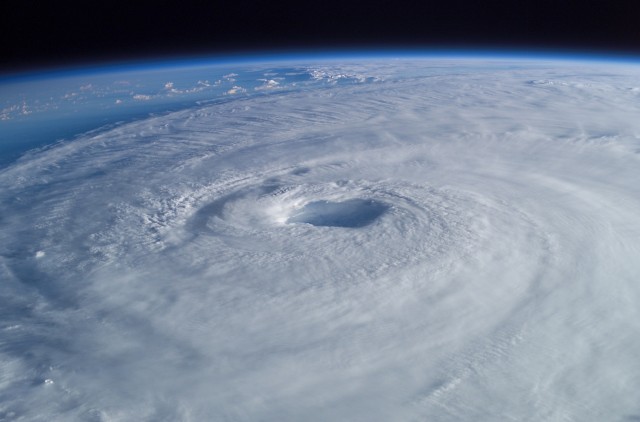
View of Hurricane Isabel from the International Space Station.
Almost every major storm is now accompanied by a climate change discussion. Everybody wants to ask whether human impacts on the climate system “caused†the storm. Unless framed carefully, it’s kind of a lousy question. We can’t say for sure that an individual storm wouldn’t have occurred if we hadn’t warmed the planet by roughly 1°C—climate is, by definition, statistical. So we use analogies like the climate loading the dice (or juicing its hits like a steroid-assisted major leaguer). What we do know is that every storm now takes place in a world that’s notably warmer than it was a century ago.
Perhaps no type of storm draws as much attention in the US as hurricanes, but the science of these storms has been dissatisfyingly uncertain. Some studies have projected more hurricanes in the future, but others have projected fewer. The best information available today points to decreasing frequency but increasing strength, but it comes with significant uncertainties.
One challenge is that global climate models used to make projections for the future have a hard time effectively simulating the fine-scale processes within hurricanes, which has contributed to the present uncertainty. Modern hurricane observations are also much better than they were in the past, so it’s difficult to identify historical trends in any of these details.
Read 7 remaining paragraphs | Comments
from Ars Technica
![]()


